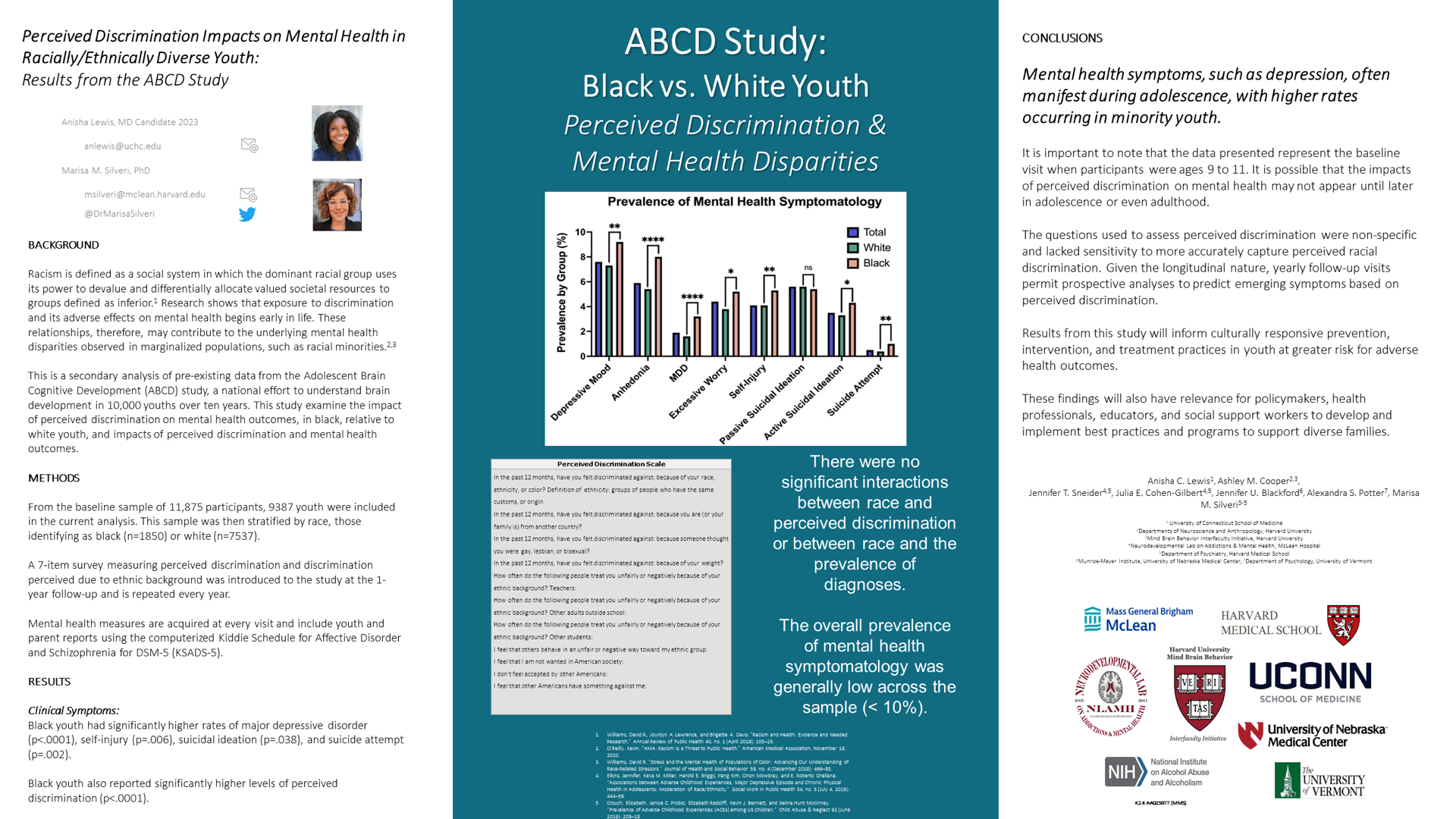Scientific Abstract
Background: Racism is defined as a social system in which the dominant racial group uses its power to devalue and differentially allocate valued societal resources to groups defined as inferior.1 Research shows that exposure to discrimination and its adverse effects on mental health begins early in life. These relationships may contribute to the underlying mental health disparities observed in marginalized populations, such as racial minorities.2,3 This study examined data from the Adolescent Brain Cognitive Development (ABCD) study, a national effort to understand brain development in 11,000 youths over ten years. This study aimed to examine the impact of perceived discrimination on mental health outcomes, including depressive disorders in black, relative to white youth, and to investigate relationships between perceived discrimination and mental health outcomes.
Method: This is a secondary analysis of pre-existing data from the ABCD study. From the baseline sample, 9387 youth were included in this analysis. This sample was stratified by race, those identifying as black (n=1850) or white (n=7537). A perceived discrimination survey measuring perceived discrimination was introduced to the study at the 1-year follow-up. Mental health measures were acquired at each visit and include youth and parent reports using the Kiddie Schedule for Affective Disorder and Schizophrenia for DSM-5 (KSADS-5).
Results: Black youth had statistically significant higher rates of depressed mood symptomatology, including major depressive disorder (p<.0001), self-injury (p=.006), suicidal ideation (p=.038), and suicide attempt (p=.002). Black youth reported significantly higher levels of perceived discrimination (p<.0001).
Conclusions: Mental health symptoms, such as depression, often manifest during adolescence, with significantly higher rates occurring in minority youth. Results from this study will inform culturally responsive prevention, intervention, and treatment practices in youth at greater risk for adverse health outcomes. These findings will have significant relevance for policymakers, health professionals, and social support workers to develop best practices to support families.
Search posters

